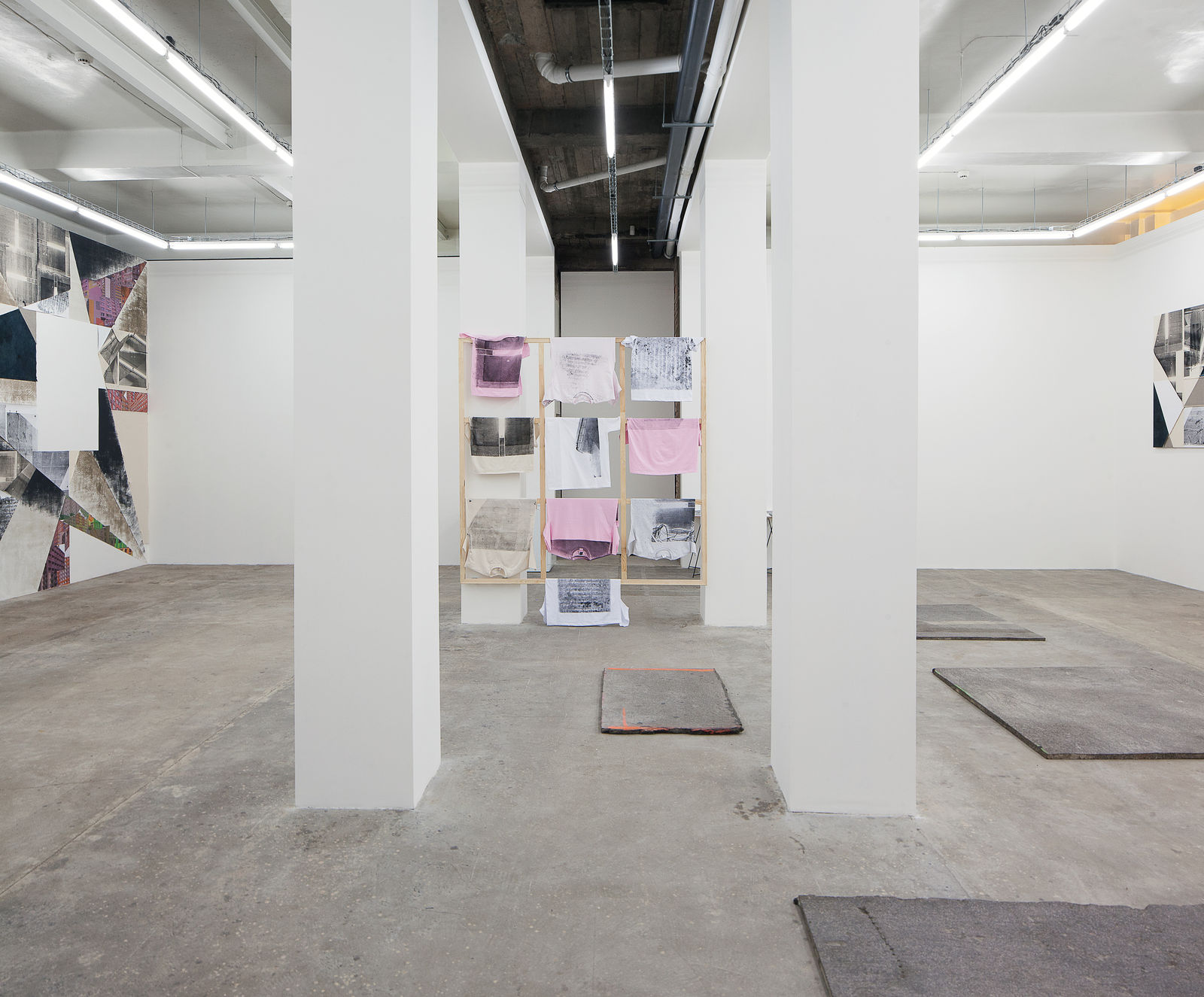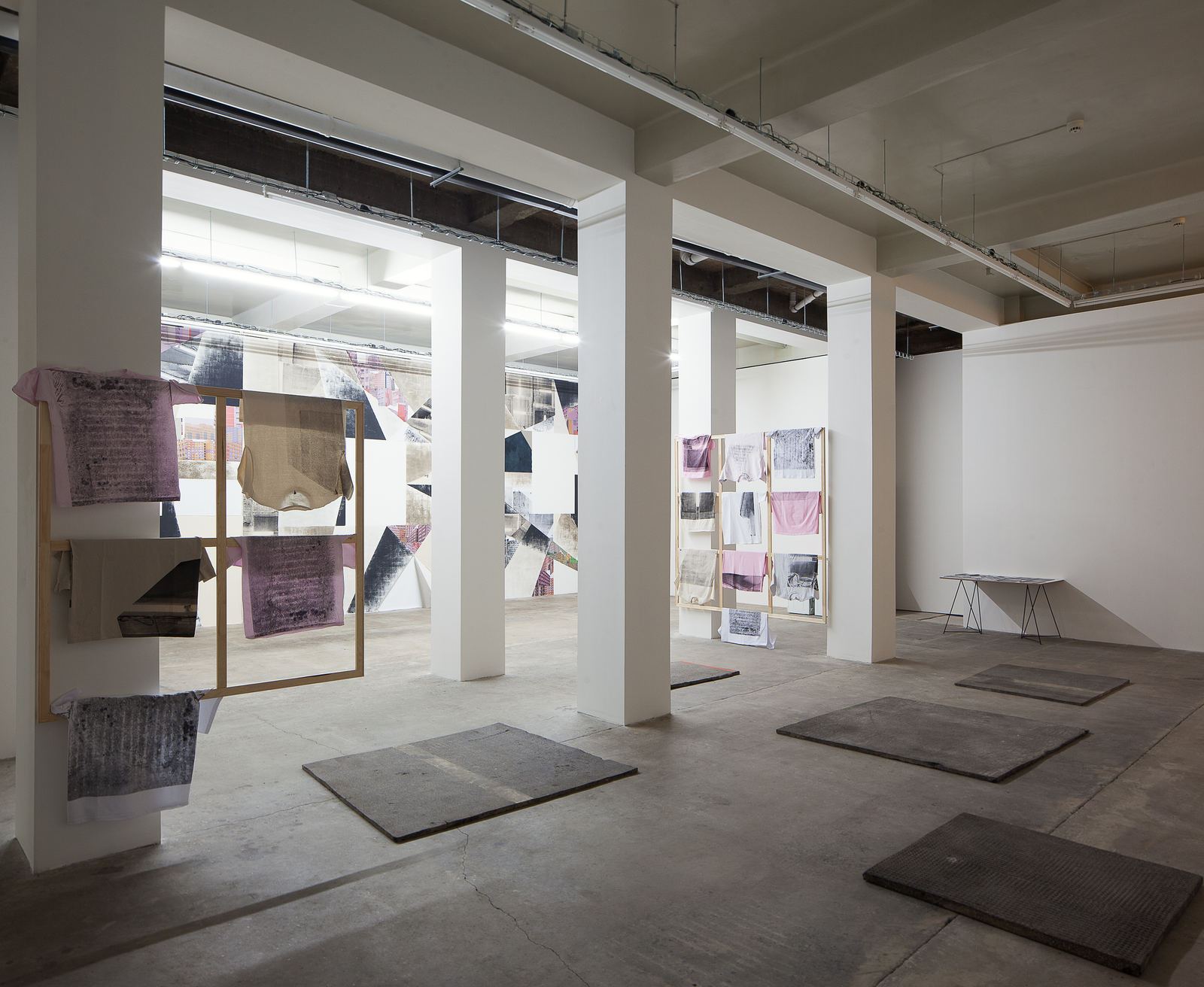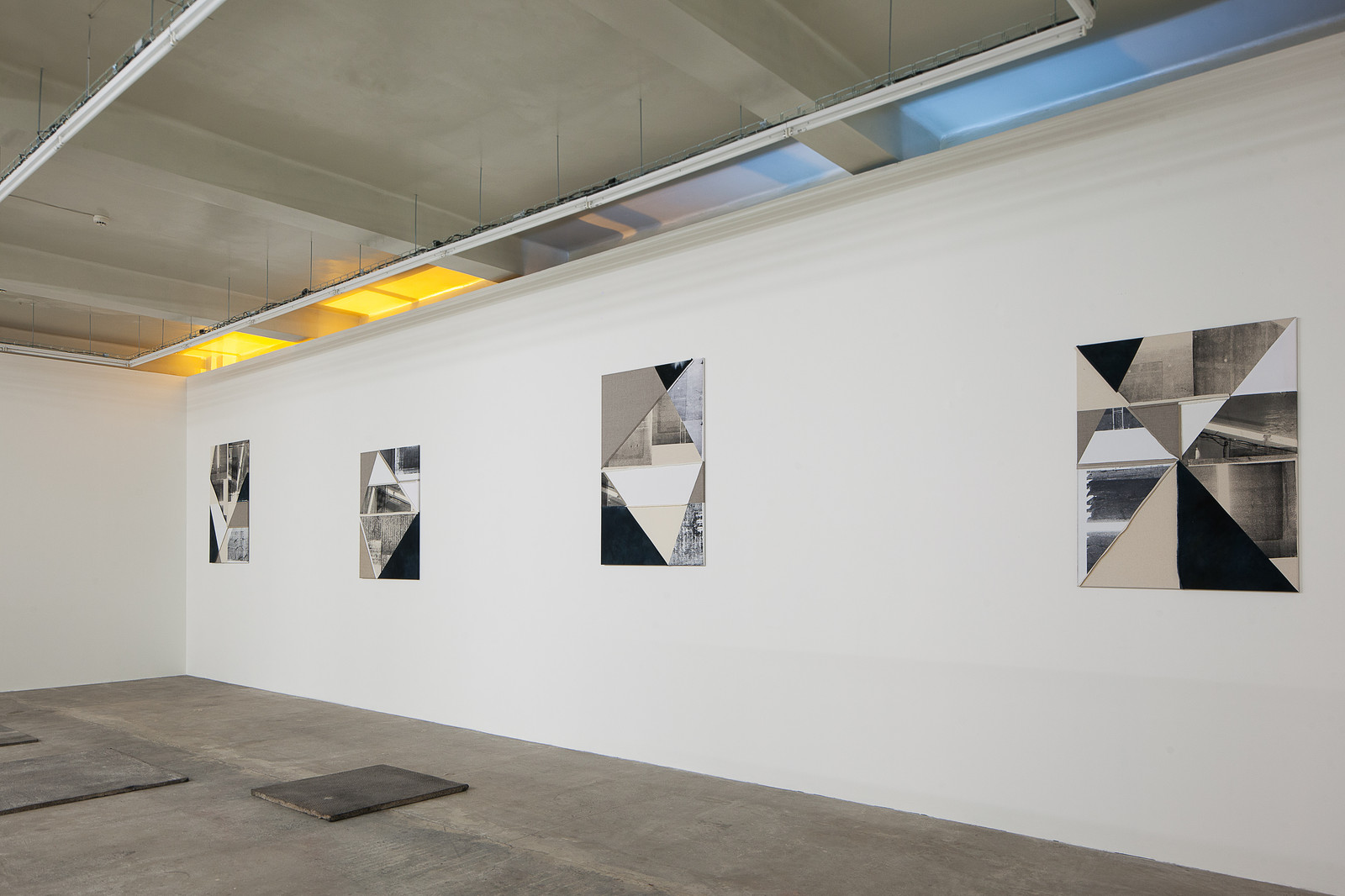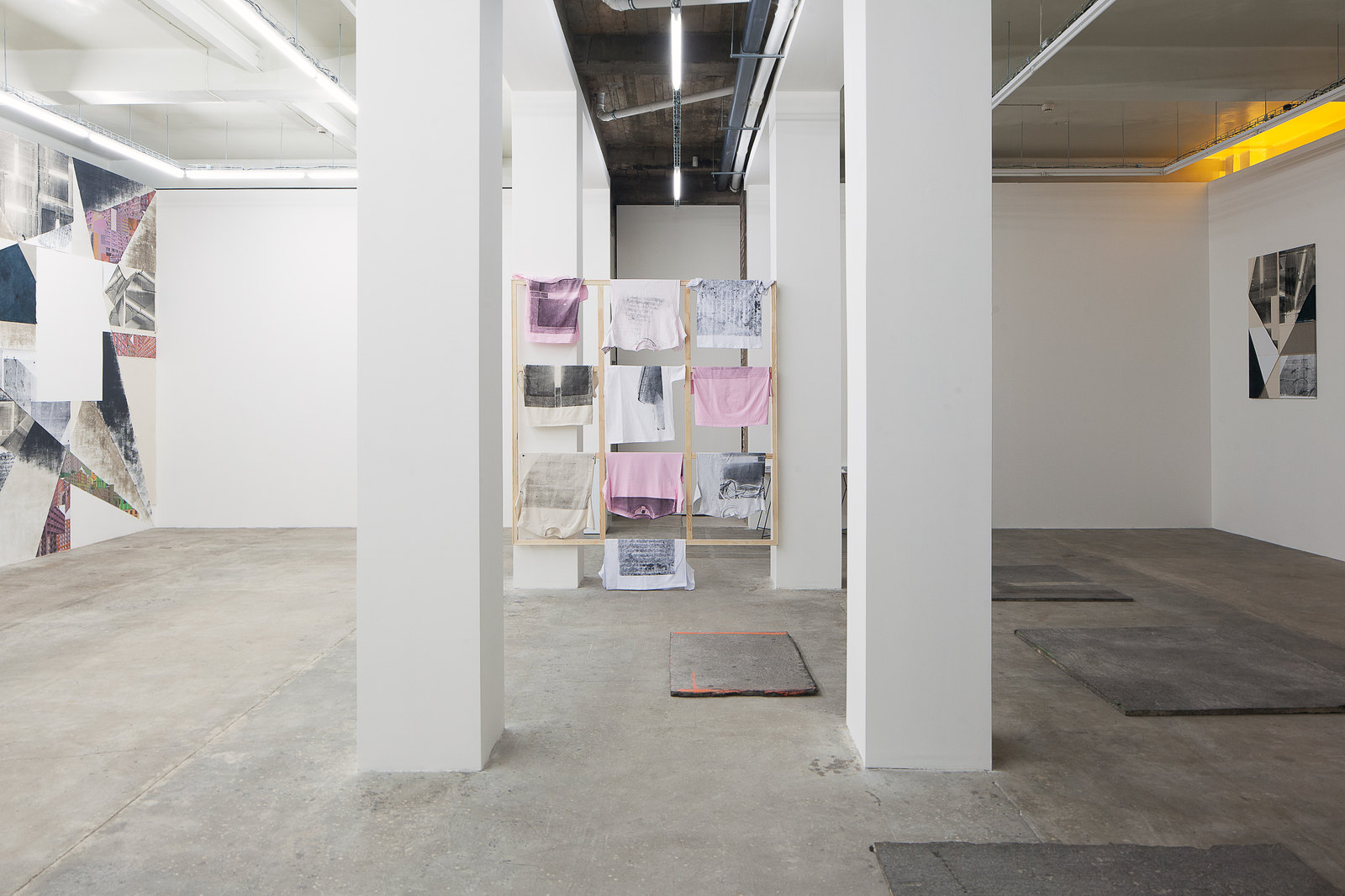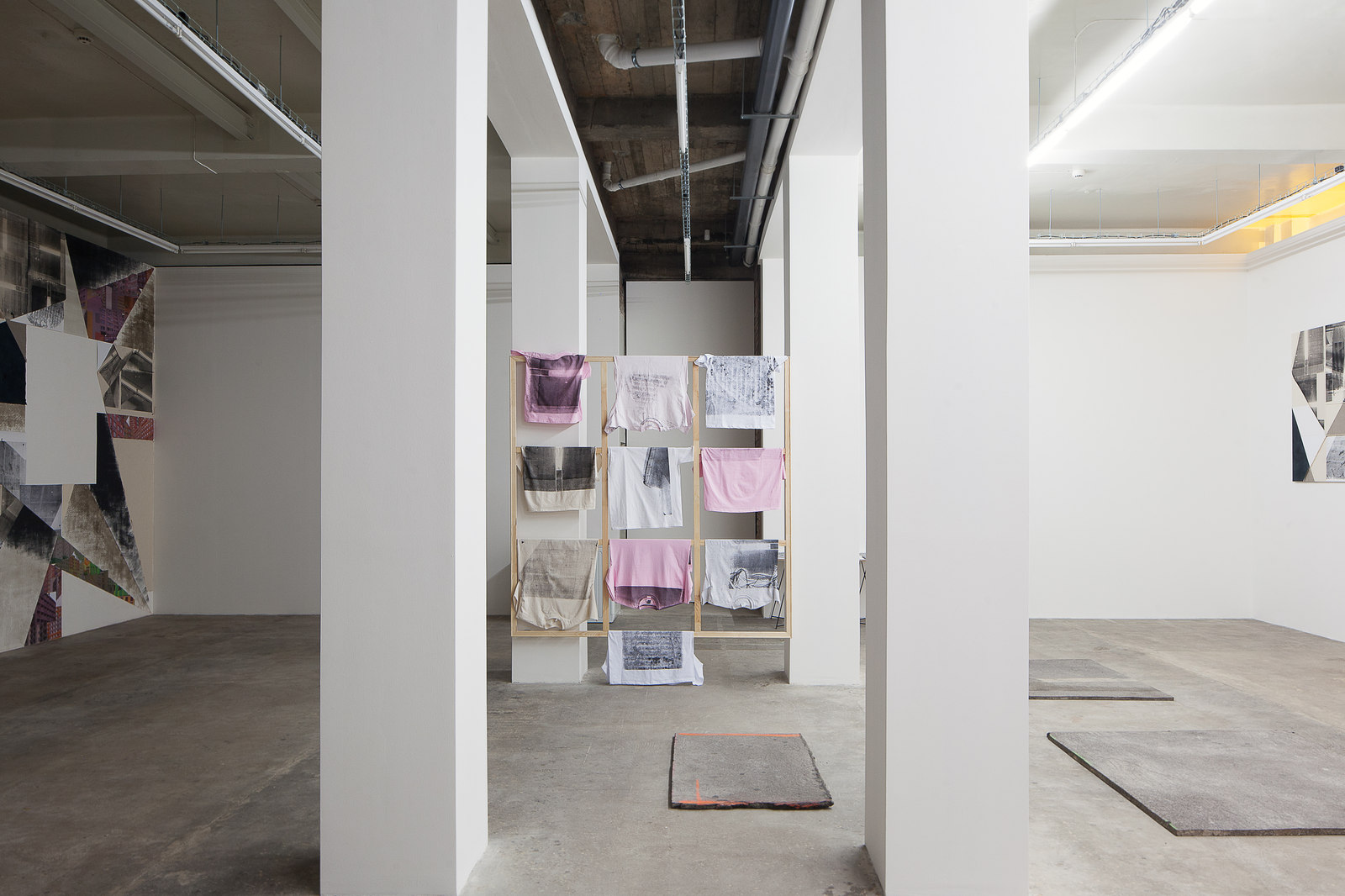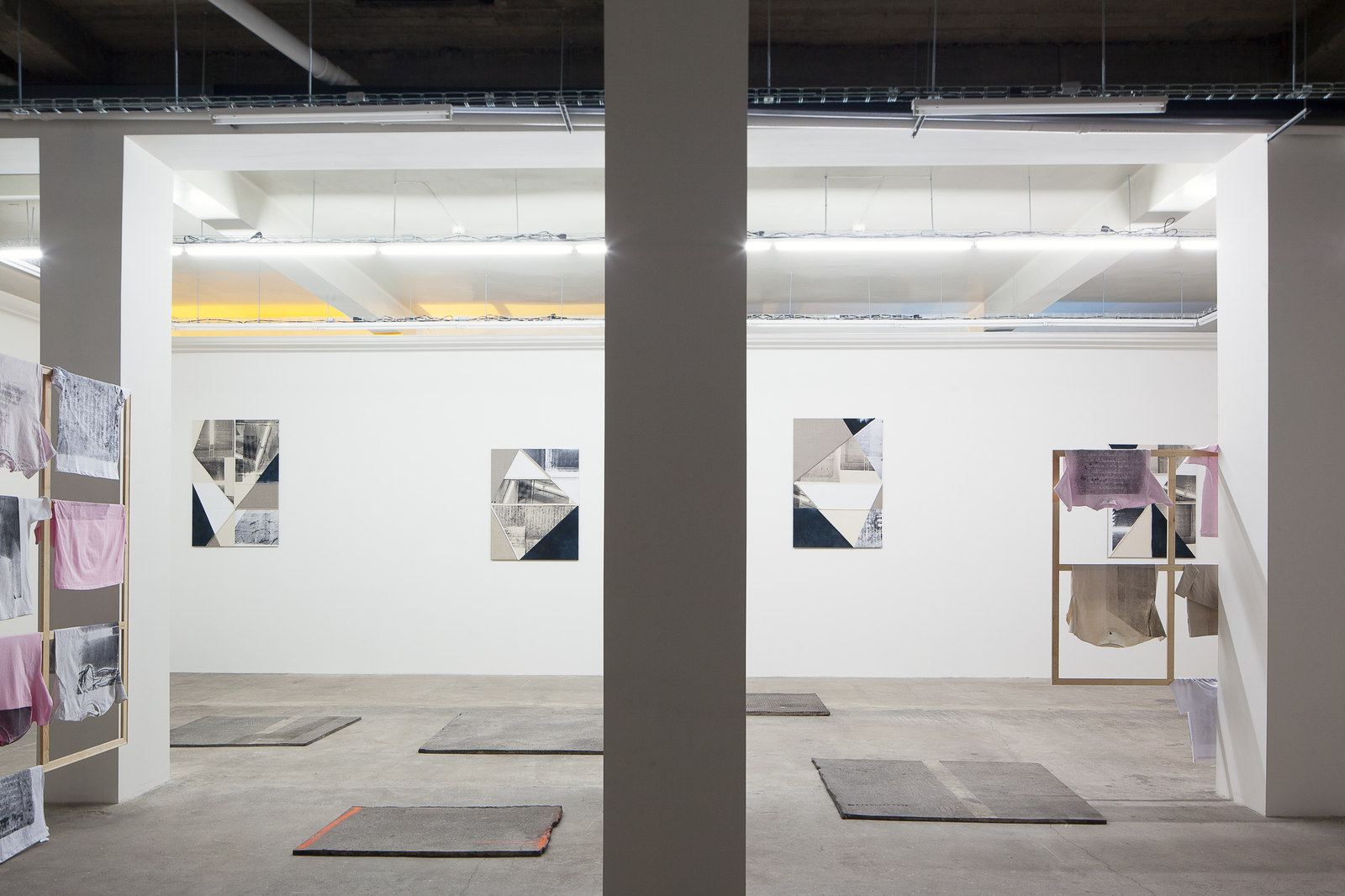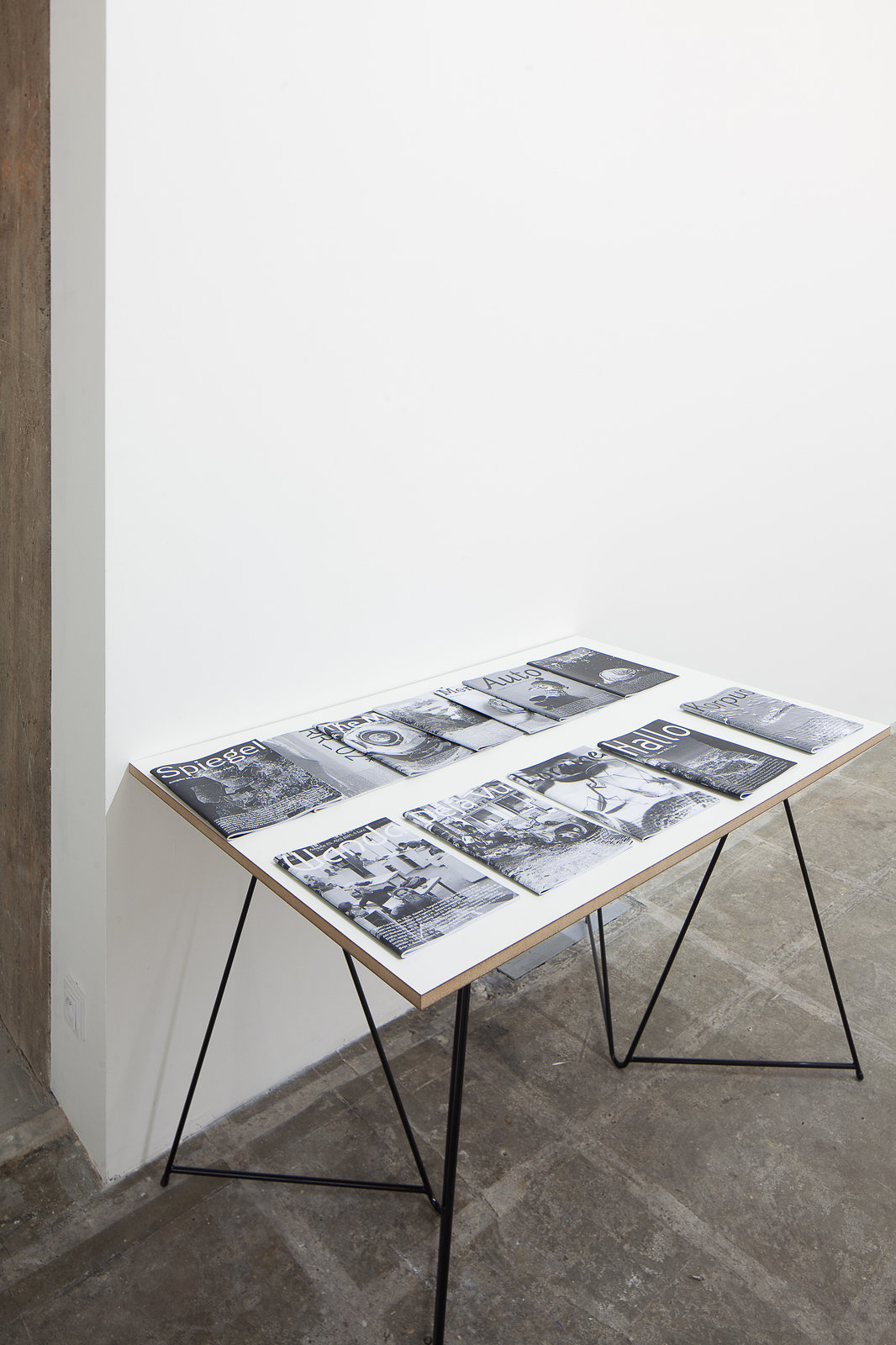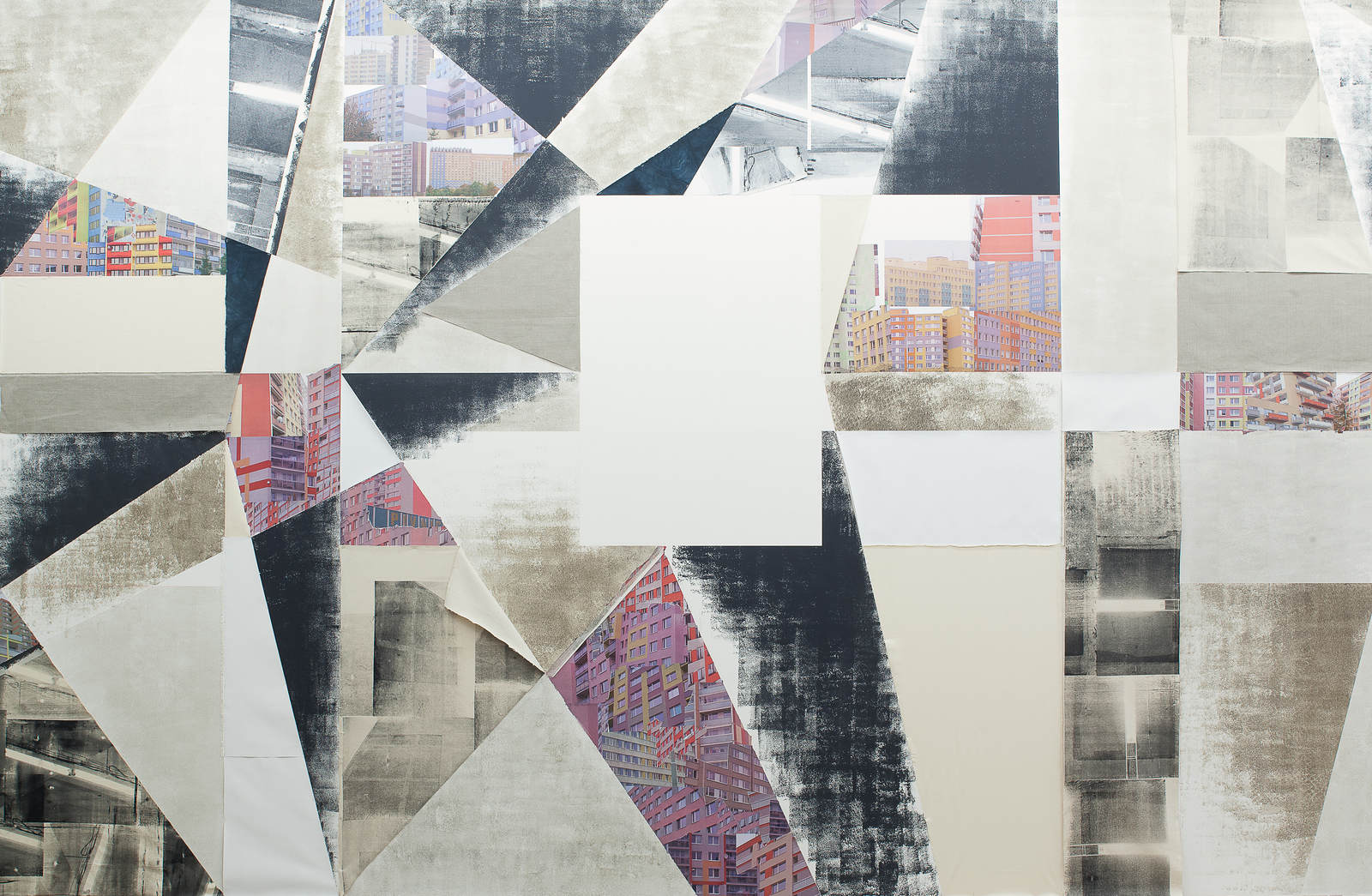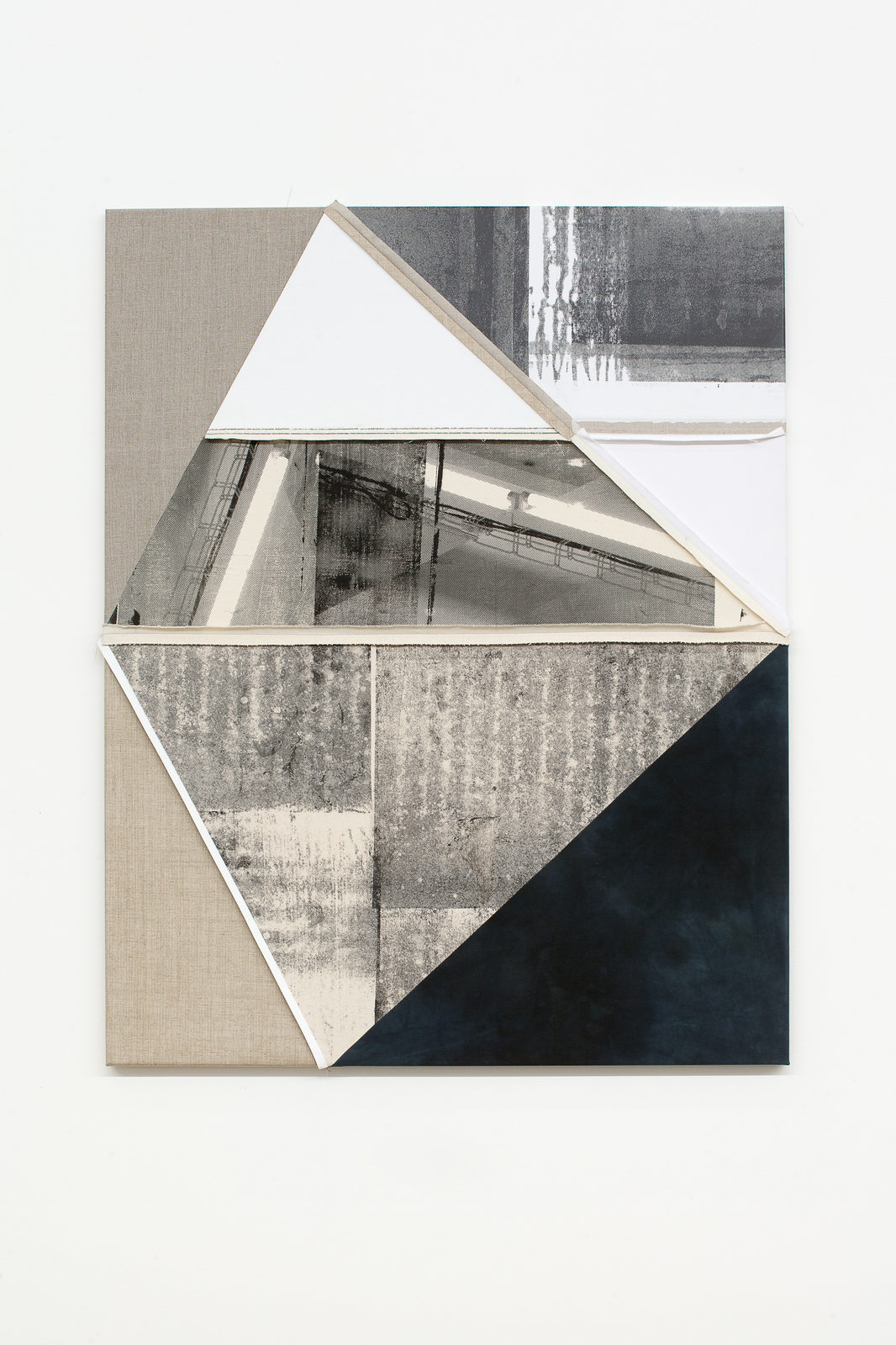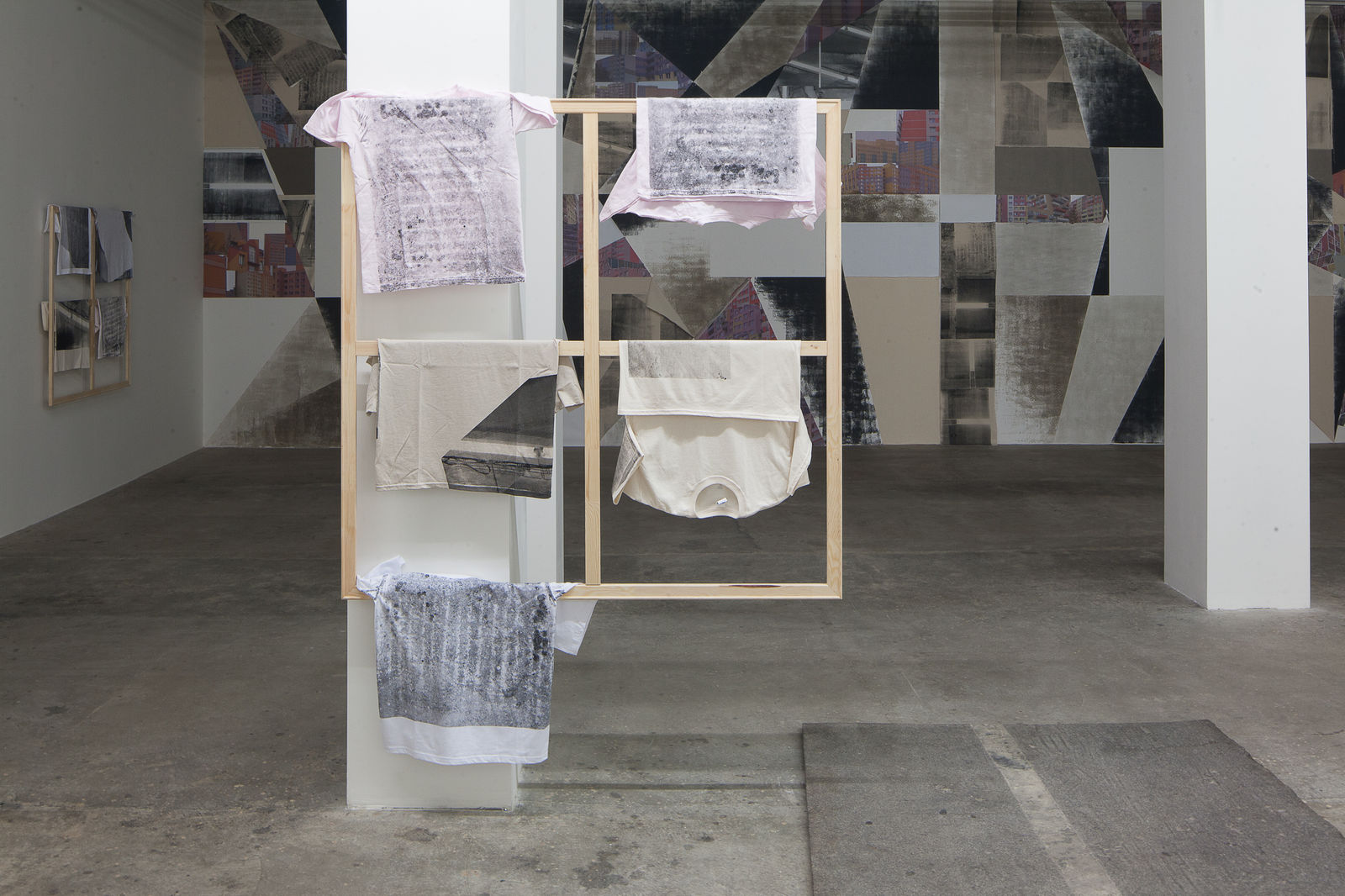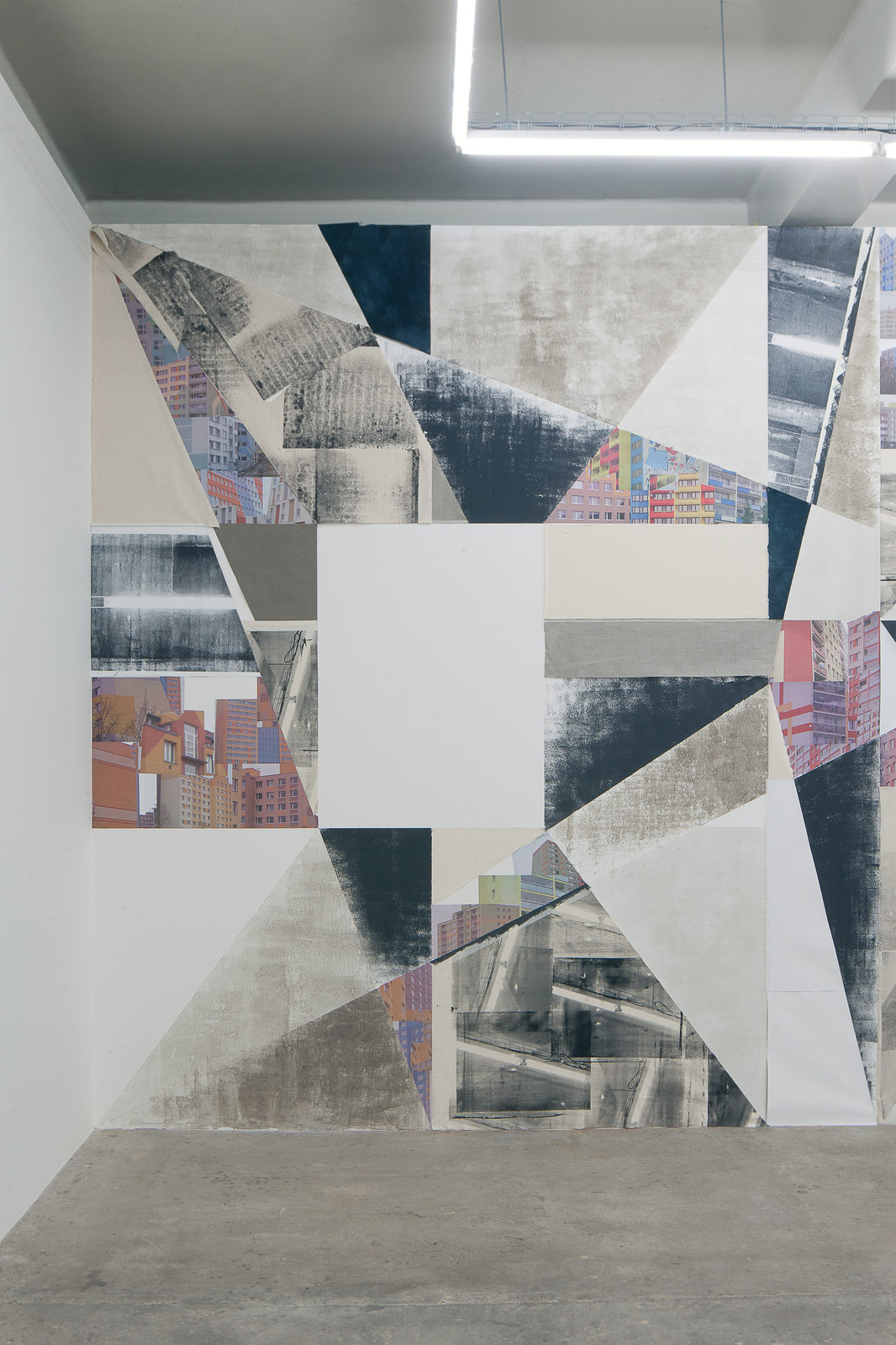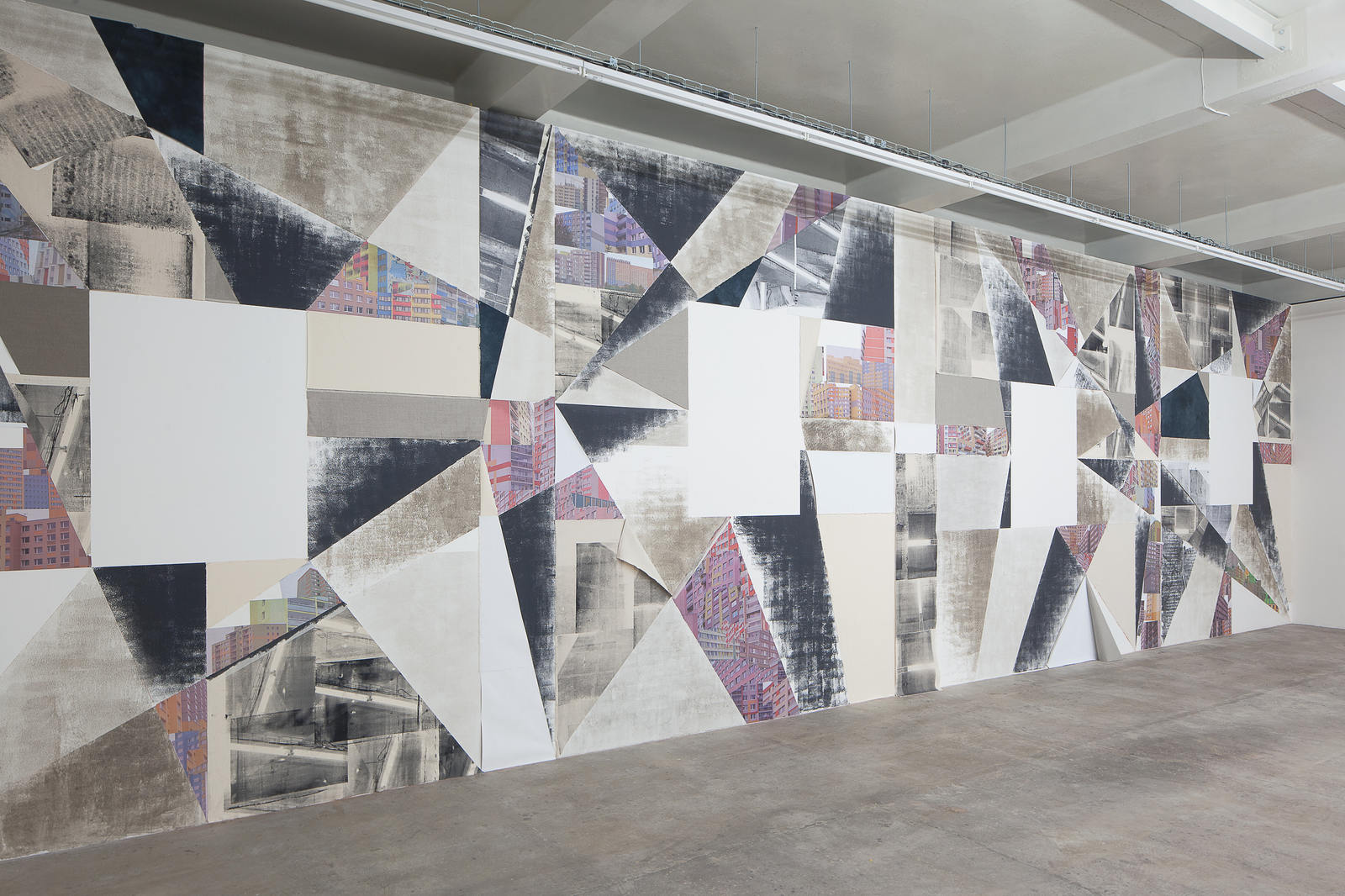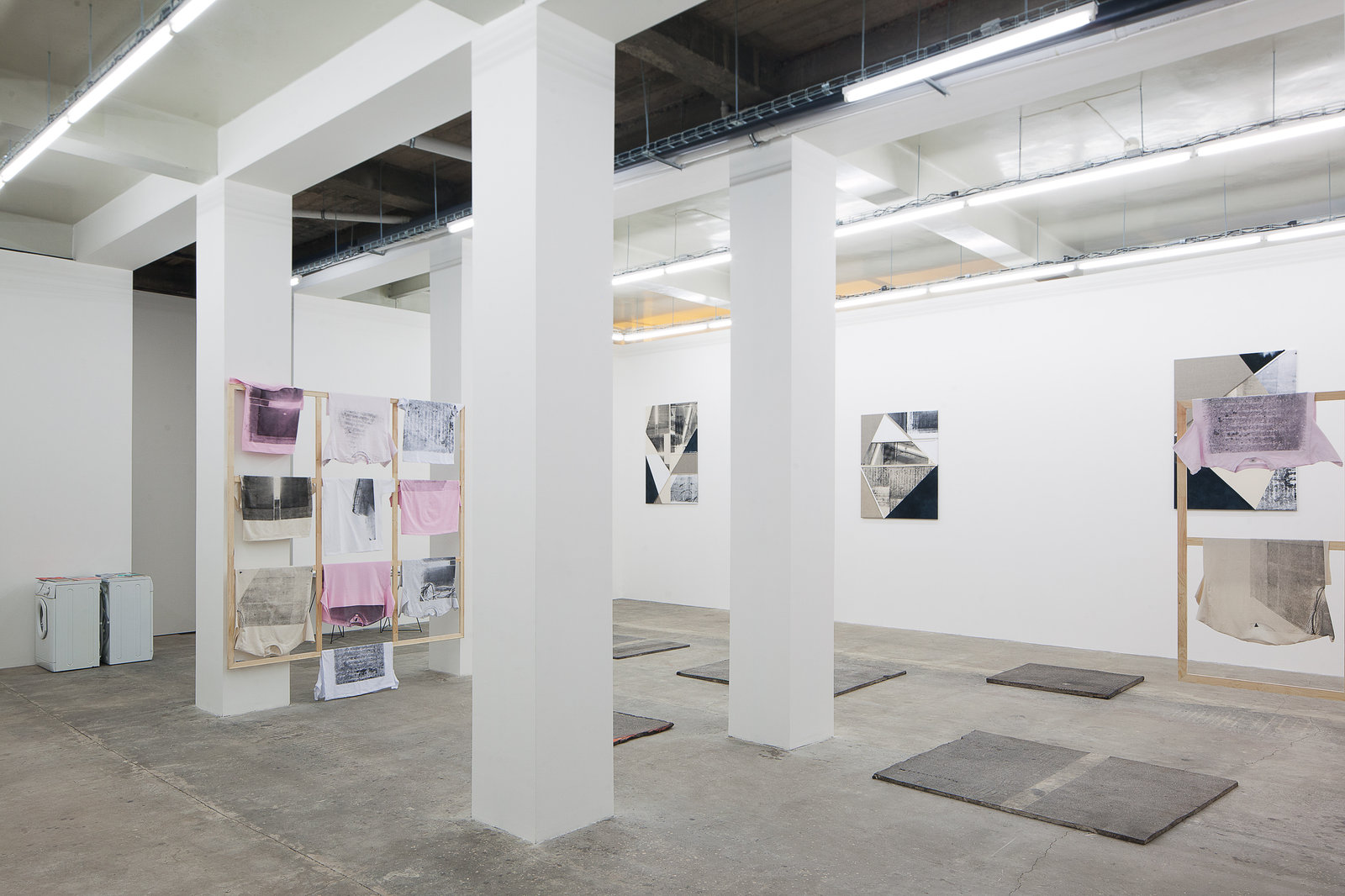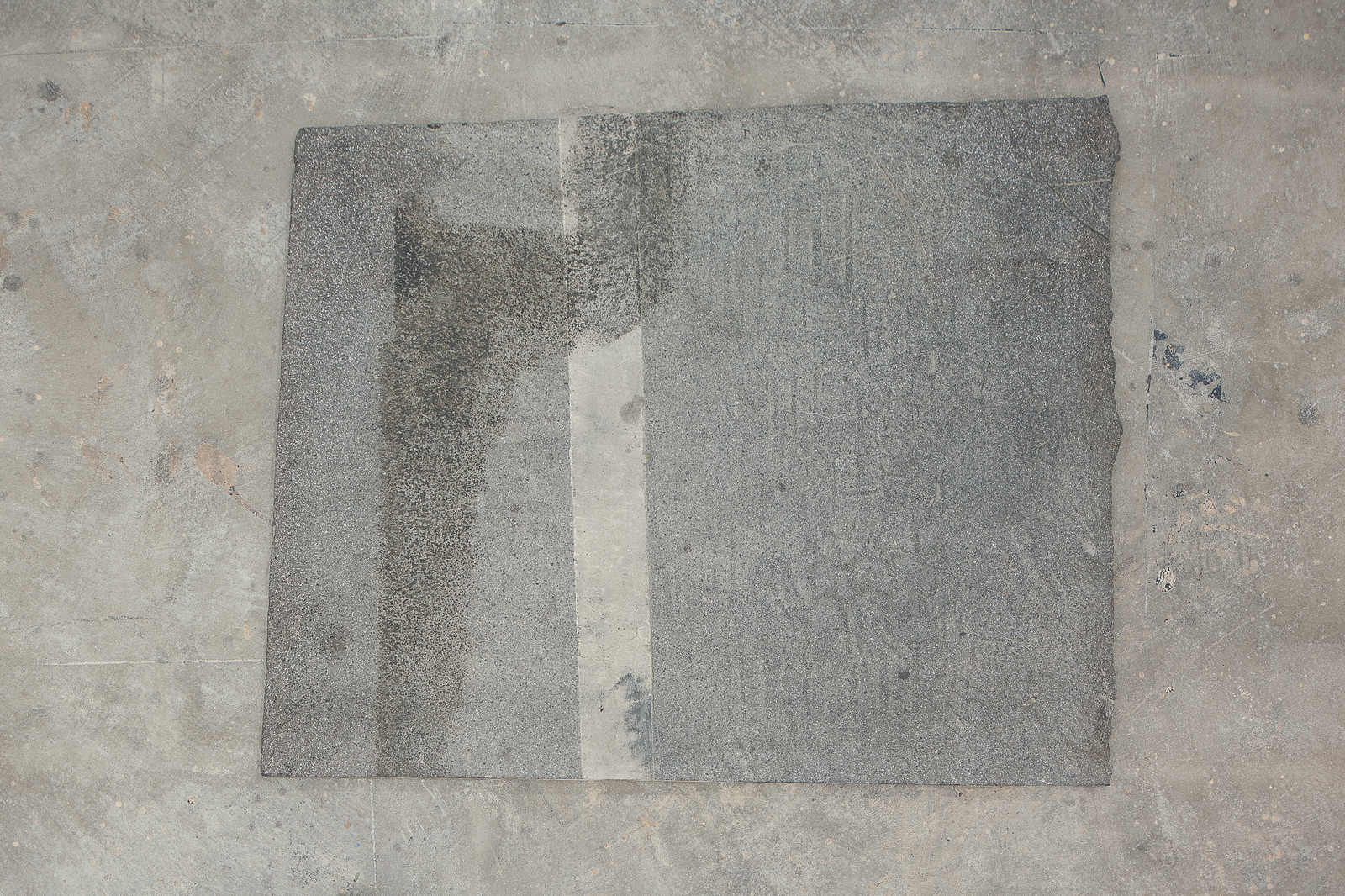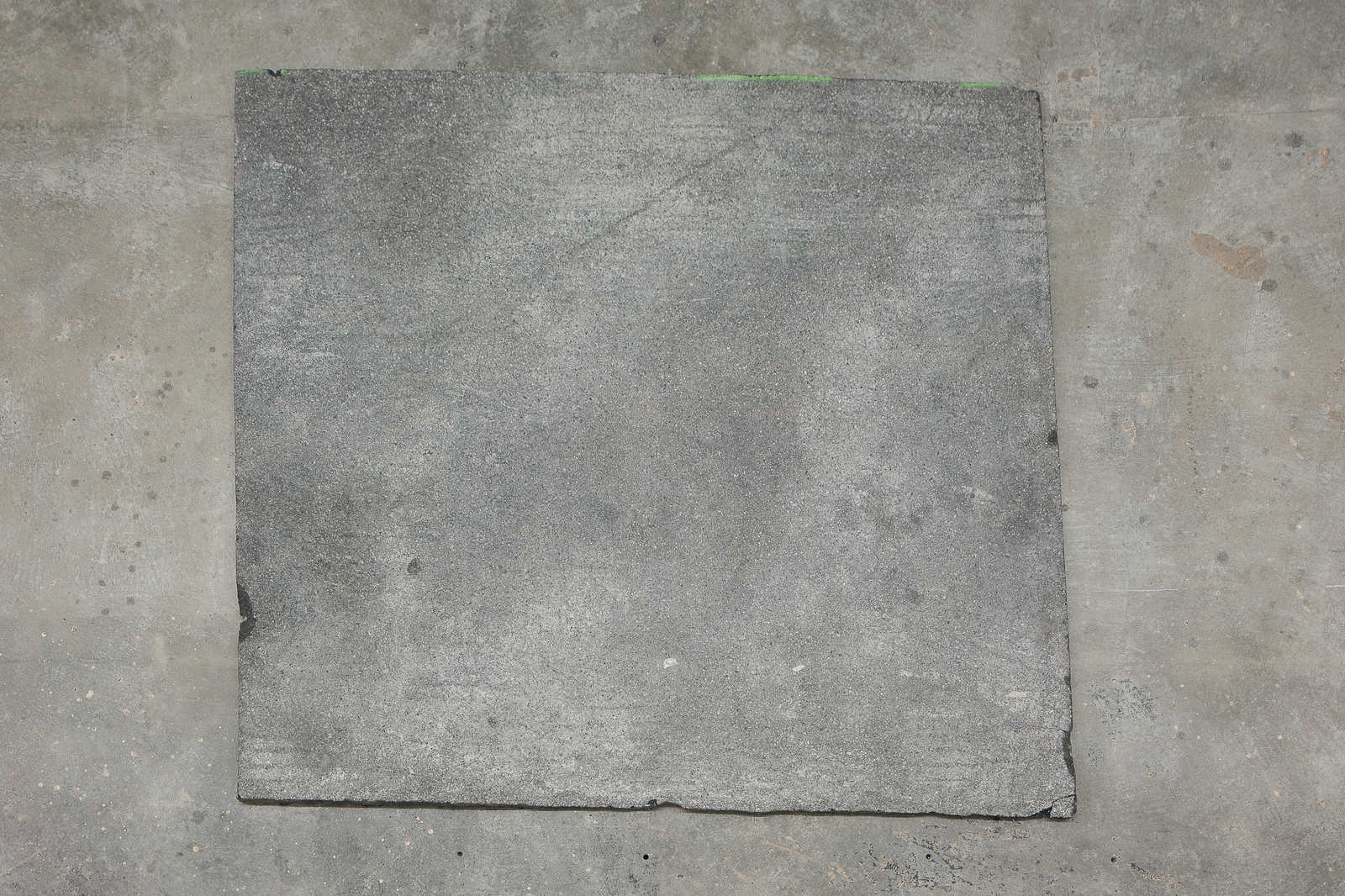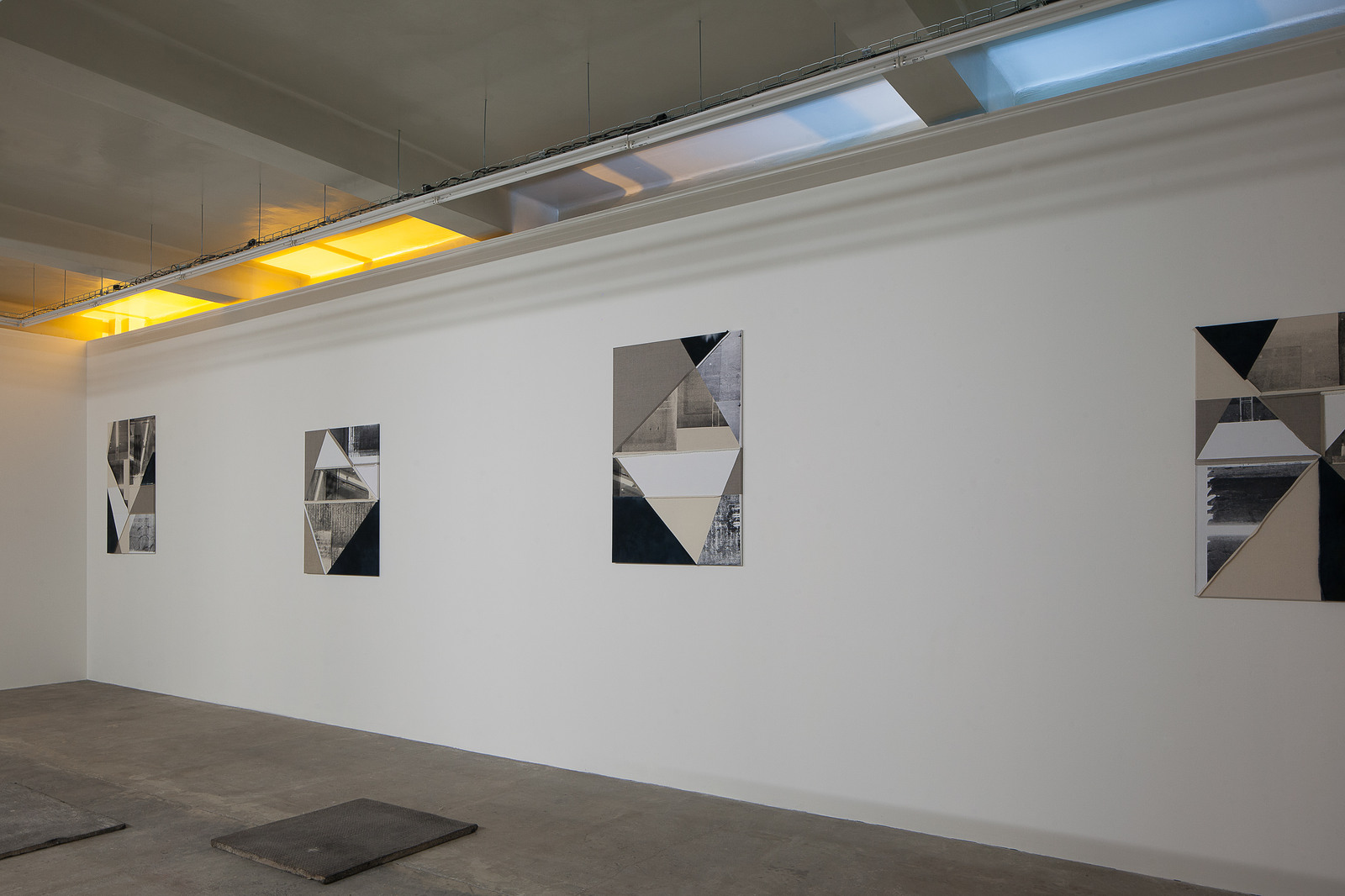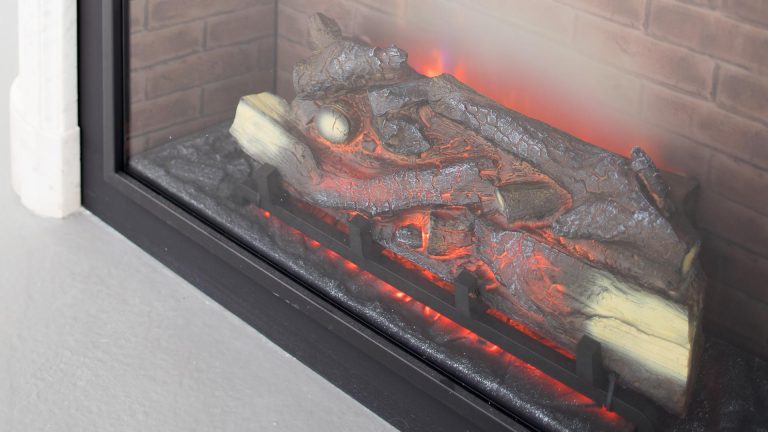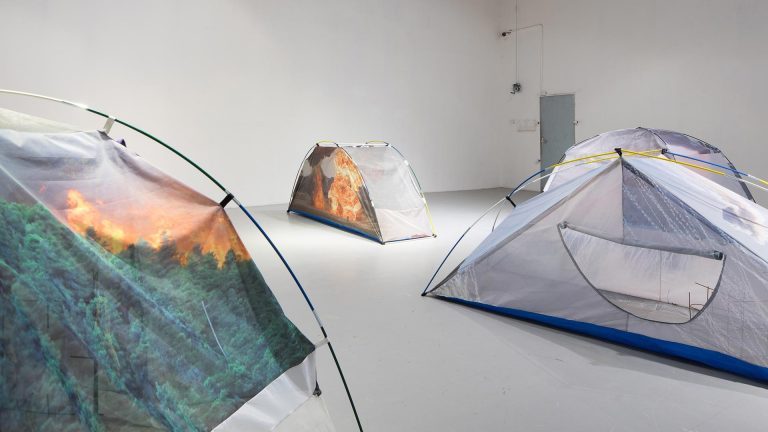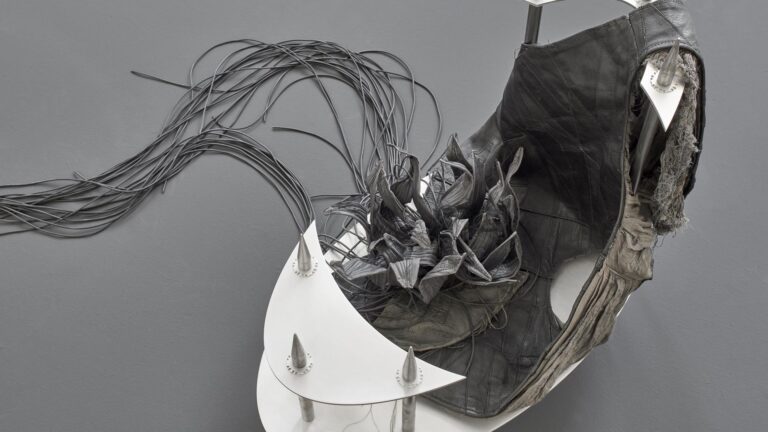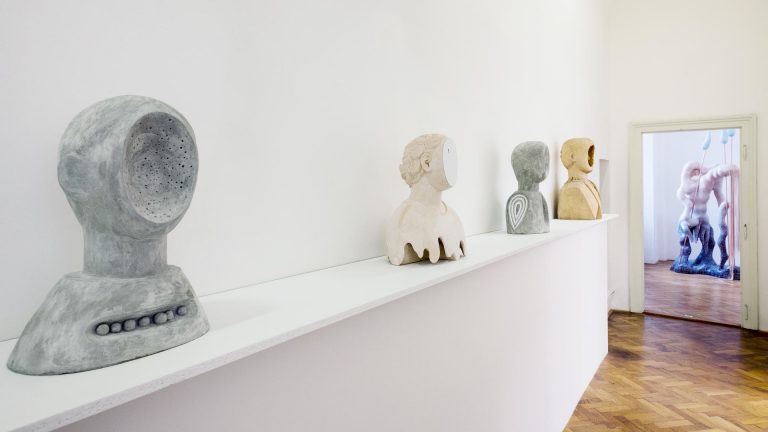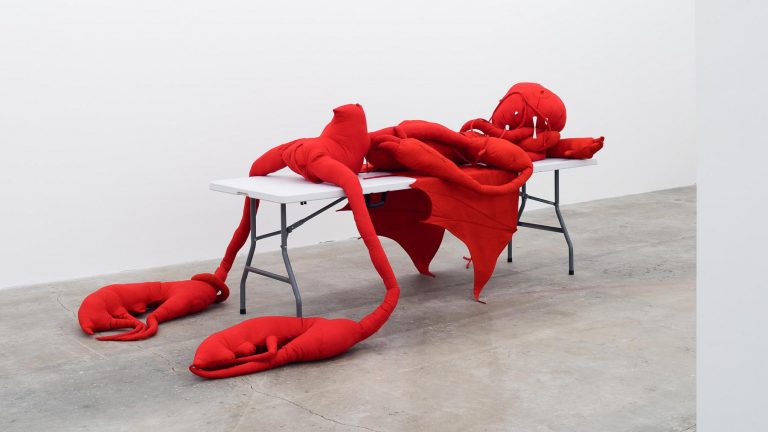Artist: Alexander Wolff (with Sonia Leimer, Mandla Reuter, Starship, ztscrpt.net)
Exhibition title: The painters have finished
Venue: SVIT, Prague, The Czech Republic
Date: November 12 – December 23, 2016
Photography: all images copyright and courtesy of the artist and SVIT, Prague
I had the pleasure of meeting Alexander Wolff when we participated in a group exhibition at Austrian Culture Forum in Prague in 2006. We reunited recently and his memory of our cooperation was connected with my inability to communicate in English. Now, Alexander has asked me if I could write a text accompanying his upcoming exhibition at the Svit Gallery in Prague; a thing which, in the light of the above information, might be quite risky, as I am not sure whether I understood him completely this time. Happily, I agreed, without thinking about the possible consequences. The following text is the result of my effort to introduce the works of Alexander Wolff and Sonia Leimer and Mandla Reuter, two artists whom he invited to participate in the exhibition. If my text doesn’t ‘hit home’ or even directly misinterprets the exhibited works, then take it just as a result of one misunderstanding.
The exhibition The painters have finished interconnects three artists – Alexander Wolff, Sonia Leimer and Mandla Reuter who move on the route Berlin-Prague-Vienna. As they live and work in Berlin and Vienna, Prague is just a transit point on their journeys; a place from which they move somewhere else. Their joint exhibition at the SVIT Gallery is thus a reason for them to make the Prague stopover a bit longer. Alexander Wolff uses this stopover for visiting Prague’s apartment-block housing projects the wall painting styles and forms of which he studies. In this process, he behaves as a tourist who, on his walk through a city or a landscape, selects from all the things offered to his sight only those ones located on the surface. He extracts shapes, forms and colours which later, in the exhibition space, he uses as parts of a structured picture puzzle. His artistic procedure can be described as composing rather than painting. He composes or assembles a mural painting, in a collage style manner, right in the gallery. This mural or rather ornament integrates and reflects its own surroundings, the background on which it is presented, the lighting and columns. The painting is reduced to black and white. Apart from colours, he also integrates dust, silk-screen prints on canvas with motifs of the gallery exhibition space as well as paintings on T-shirts (which can be removed and worn) into the painting. As the viewers become a part of Wolff’s painting, the painting and the gallery exhibition space interconnect into one integral unity with interlinking or overlapping parts. They either cover the wall, show the wall, or detach themselves from the wall. They inhabit the space and sometimes they adjust to the visitors’ bodies. The rest of the exhibition space is also composed as a scene, whether it is the ‘figures’ in clothes or the integration of works of two other artists – Sonia Leimer’s floor statues and several layers of lighting by Mandla Reuter. Sonia Leimer extracts squared parts of sidewalks from Viennese streets and presents them as floor statues. Their size is similar to the size of prefab blocks in housing estates; big enough for the visitors to walk on them. She extracts clearly defined parts from the public space in a surgical manner, then she creates certain kind of patches, layers, platforms or stages out of them and presents them in a gallery. Leimer focuses on the relationship between the physical space (architecture) and artistic work – a reaction or intervention into a selected place. In this process, she is interested in the factors which influence our perception based on our experience – immediate and individual, mediated or manipulated. She also highlights the materialness of things and ways in which materials are generated, used etc.
At the SVIT Gallery, Mandla Reuter creates a certain multiplication of or alternative to the existing lighting by installing street lights and neon fluorescent tubes. They illuminate the exhibition area in an alternating manner with the existing gallery lights. Thus, different light modes are created starting from a neutral gallery lighting and moving through flickering bluish moon light to yellow, monochrome street-type lighting. In his work, Reuter often interferes with the ground plan of the exhibition area and changes its function. He determines the route and manner of viewing his exhibitions which he composes as new, ingenious units. In these units, the exhibition area itself, the rhythm of the exhibited objects and exactly determined gaps between them play a significant role. Another important factor is the obstacles which prevent natural passage through the area, rebuild its existing ground plan and guide the visitor’s body to follow a particular direction. Reuter drew his inspiration from the lighting systems of Friedrich Kiesler created for the Peggy Guggenheim surrealist gallery in New York.
In his previous works, Reuter used lighting as a navigation but also scenic tool leading the viewer from one exhibited piece to another (the works were illuminated and then submerged into darkness again – one by one) or he connected his works with particular objects. In the SVIT Gallery, his approach is different; his lights form an additional illumination system; extra lights situated under the existing ones which intervene in the gallery’s interior architecture in a significant manner.
There is one aspect which connects the approaches of all three participating artists – the effort to contextualise their works with the particular exhibition space, an effort to start interaction between the reality and fiction, mixing the public space, segments of the exhibition space and the exhibited works into one compact unity – one artistic piece. While Wolff activates the walls and Leimer the floors, Reuter divides the viewer’s visit into segments by various lighting means. Wolff – the wall, Leimer – the floor and Reuter – the ceiling with lights; in this manner, they also construct their own exhibition space, the backdrop of the gallery which, at the same time, is a self-contained artistic work. The wall, floor and ceiling function as interacting units which create the architecture of cooperation.
As a picture motif representing their joint exhibition, the artists selected a frame from the film ‘Panelstory aneb Jak se rodí sídliště’ made in 1979 by Věra Chytilová. This film shows the mosaic of various characters of the apartment blocks’ future inhabitants and expresses criticism of the state of Czechoslovak society in the 1970s. The construction of a huge housing estate serves as a background for the film story. The selected scene presents a view of a construction in progress – a prefabricated concrete block is being lifted by a crane above partially finished buildings. Under the picture, a misplaced subtitle appears. It reads: The painters have finished. For Wolff, particularly, this sentence is a motif which is present in his artistic work, i.e. contemplating the relativity of the medium of painting and questioning its topicality. The scene however also shows motifs common to all three participating artists: the props, choreography of space and object, process of an artistic work creation and the stage of it being presented to the public, specificity, the motifs of rebuilding, extraction and re-assembly into a three-dimensional collage. The painters have finished is an exhibition which mixes and connects three cities, three artists and a countless number of motifs that transform the exhibition space into a constructed metascene in which the boundaries between what had been there originally and what was added to it later becomes very unclear, where the moment of misunderstanding or rather intentionally created uncertainty bears an artistic value. An exhibition which was created on the journey from Vienna to Berlin and back.
–Dominik Lang
The other two invited guests are Starship magazine , published since 1998 in Berlin and a zine founded in 2002 in Vienna by a group of austrian, german and swiss artists, ztscrpt.net.

